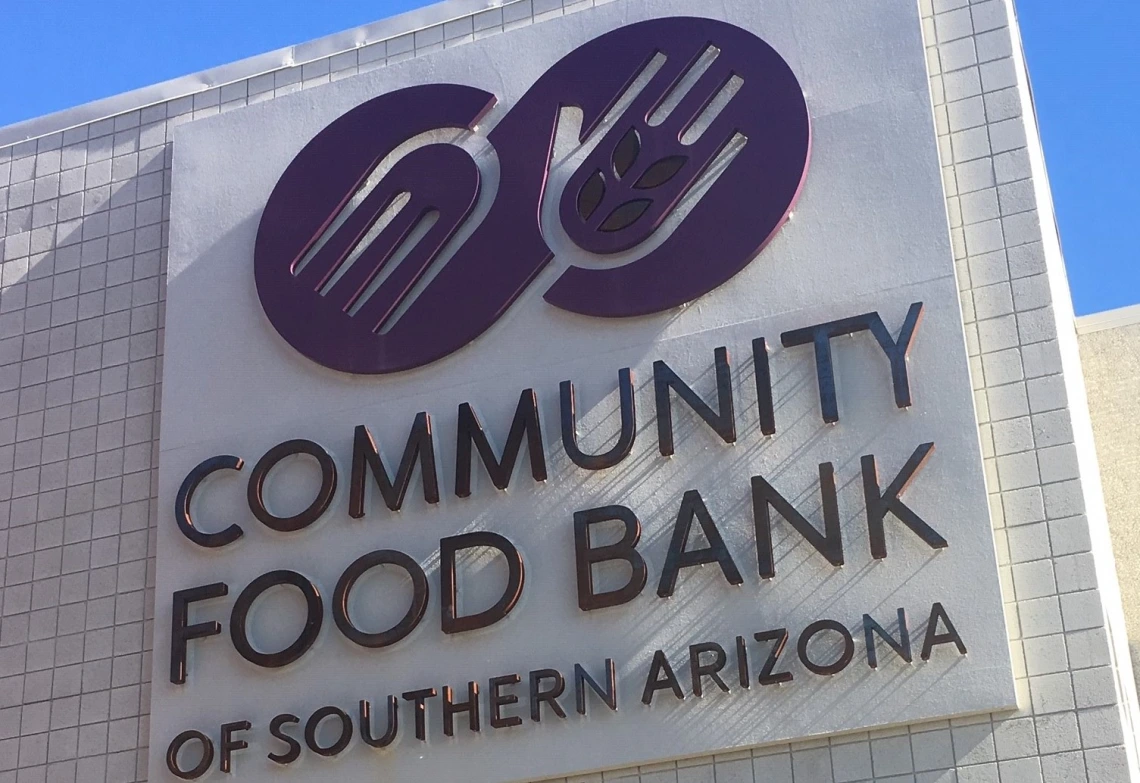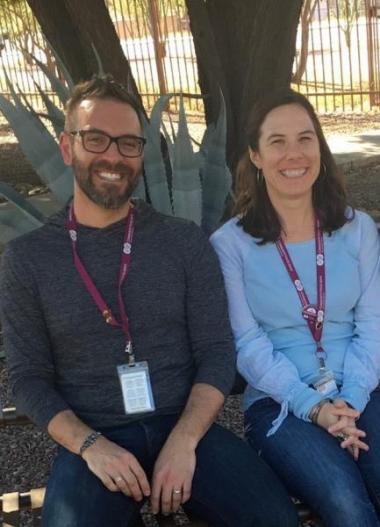MDP Students Bring Their Development Skills to the Community Food Bank

“Most people I speak with about sustainable development think that crumbling infrastructure, social injustice, and entrenched poverty are things that happen 'out there'. They aren't present in the U.S. because we've already solved those issues,” says Chris Mazzarella.
But, of course, he is quick to add, that is not at all the case. “Southern Arizona is one of the most impoverished regions of the U.S., existing within a bioregion facing a critical future with climate change and as a nexus point for Central and South American migration and economic activity. There are myriad development problems here, including aging infrastructure, high poverty rates, immigration issues, underfunded public education, and water security.”

Mazzarella is manager of the Gabrielle Giffords Resource Center at the Community Food Bank of Southern Arizona, and one of a number of UA Master’s in Development Practice (MDP) students who are applying knowledge and skills gained from the program to their work locally at the Food Bank. In the process, they are underscoring the reality that while the field of sustainable development is most often associated with the developing world, it can be just as relevant to the United States.
Indeed, the Community Food Bank’s sprawling array of programs connect directly with many themes, such as social justice, community-based empowerment, and participatory methods, that are also at the heart of the field of development practice. The Community Food Bank’s “responds to the root causes of hunger and seeks to restore dignity, health, opportunity and hope to people living in poverty.” With an estimated 1.6 million Arizonans facing chronic “food insecurity,” major areas of its work include providing equal access to healthy food, combating serious diet-related disease, easing social isolation, and promoting economic opportunity.
It was a commitment to exactly such concerns that led MDP student Samantha Turner, an administrative specialist with the Community Food Bank, to enroll in the MDP Program in the fall of 2018. “I was drawn to the MDP Program because of my experience working across Arizona on food security projects in low-income communities. Through my experience I'm inspired by the positive impact food can have on individual and community livelihood.”
Turner, who received her bachelor’s from UA in 2012, previously served with an AmeriCorps program called FoodCorps, running weekly garden and nutrition classes to K-8 students, as well as an education booth at the Farmer’s Market in Prescott, Arizona. “It has been great to see that the Food Bank, and many other domestic nonprofit organizations, are increasingly shifting from ‘charity’ to ‘justice’ models which include the empowerment of community members through education, civic engagement, and economic development.” This echoes a major theme of the UA MDP, which emphasizes “bottom-up” approaches alongside the more traditional “top-down” strategies employed by large international development agencies.
The alignment between the work of the Food Bank and the goals of the MDP program has created other linkages as well. Recently, MDP student Abbey Fluckiger has been interning with the UA Bureau of Applied Research in Anthropology (BARA) to research food acquisition strategies in rural border towns. “In my work at the Community Food Bank, I have the opportunity to conduct an ethnographic overview investigating clients’ integration of emergency food assistance services into broader food acquisition strategies,” said Fluckiger.
In spring term 2019, the entire first-year MDP class is also collectively undertaking a course project to evaluate one of the Community Food Bank’s school-based food pantry programs. Under the direction of the MDP Program’s partner organization, TANGO International, the students will examine the difference in effectiveness of food pantries that allow for clients to choose their own foods versus the traditional format in which a pre-established set of foods is provided. The goal is ultimately to determine whether the newer self-choice format will result in improved household food security outcomes.
“The Community Food Bank of Southern Arizona is an invaluable resource for the Tucson area and a fantastic partner to the University of Arizona, including to the MDP Program,” said MDP Director Katherine Snyder. “Everyone involved benefits from the synergies created by our shared commitments to poverty reduction, food scarcity remediation, livelihood development, and other goals of social justice.”

